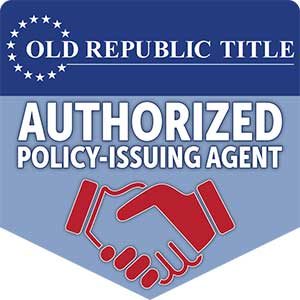When you hire a title company to perform a property title search on a property, one of the things they will be looking for is whether there is an active lien on the property. Not all liens are the same, and they are not inherently harmful. However, some liens can have disastrous effects on your credit score and your financial situation. It’s important to know which liens are bad so you don’t get stuck with one after purchasing a new home.
What is a Lien?
A lien is a legal right or claim to a property by a creditor, such as a bank or credit union. Liens are often placed against properties like cars and homes. It is not necessarily good or bad – for example if you have a mortgage, you have a lien on your house. Paying off your mortgage would cause the lien to be removed and you would have full ownership of the title.
The purpose of a lien is for a creditor to limit what the owner can do with a specific asset (in this case, a house) as they have a stake in the property that can be used as compensation if the homeowner is unable to pay back the mortgage. If a homeowner attempts to sell a home with a lien on it, it can cause complications.
Types of House Liens – Consensual vs. Statutory
Liens can be put in place by a contractor, government agency, or another kind of creditor. There are several types of liens that can be placed on a home, and they fall into one of two categories: Consensual (voluntary) or statutory (involuntary).
- A consensual lien is something like a mortgage or a line of credit, which the borrower seeks out intentionally and both parties agree to before finalizing an agreement. Voluntary loans have no negative impact unless the creditor takes action due to nonpayment.
- A statutory lien is often put in place if a borrower defaults on a loan or promised payment. This is the negative type of lien, and Common examples of statutory liens include:
- Tax lien – A tax lien is put on your property by a government agency for any unpaid income taxes, business taxes, or property taxes.
- General judgment lien – This type of lien is granted to a creditor by the court after a debtor fails to make a necessary financial payment.
- Mechanic’s lien – When a property owner fails or refuses to pay for completed work or supplies, construction companies, builders, and contractors may file a mechanic’s lien, also known as a property or construction lien.
Property Title Search to Uncover Existing Liens
A property title search usually occurs once an offer to buy a piece of real estate has been accepted. The title company goes through a process of rigorously examining multiple sources to determine if the property is free of liens, pending lawsuits, unpaid taxes, leases, easements, mortgages and other outstanding issues or restrictions that could impact the transfer of ownership. This includes looking at deeds, divorce cases, county land records, bankruptcy records and other financial judgments potentially attached to the property. A clear property title search means the buyer and lender agree there are no outstanding issues that could crop up after ownership has been transferred.





